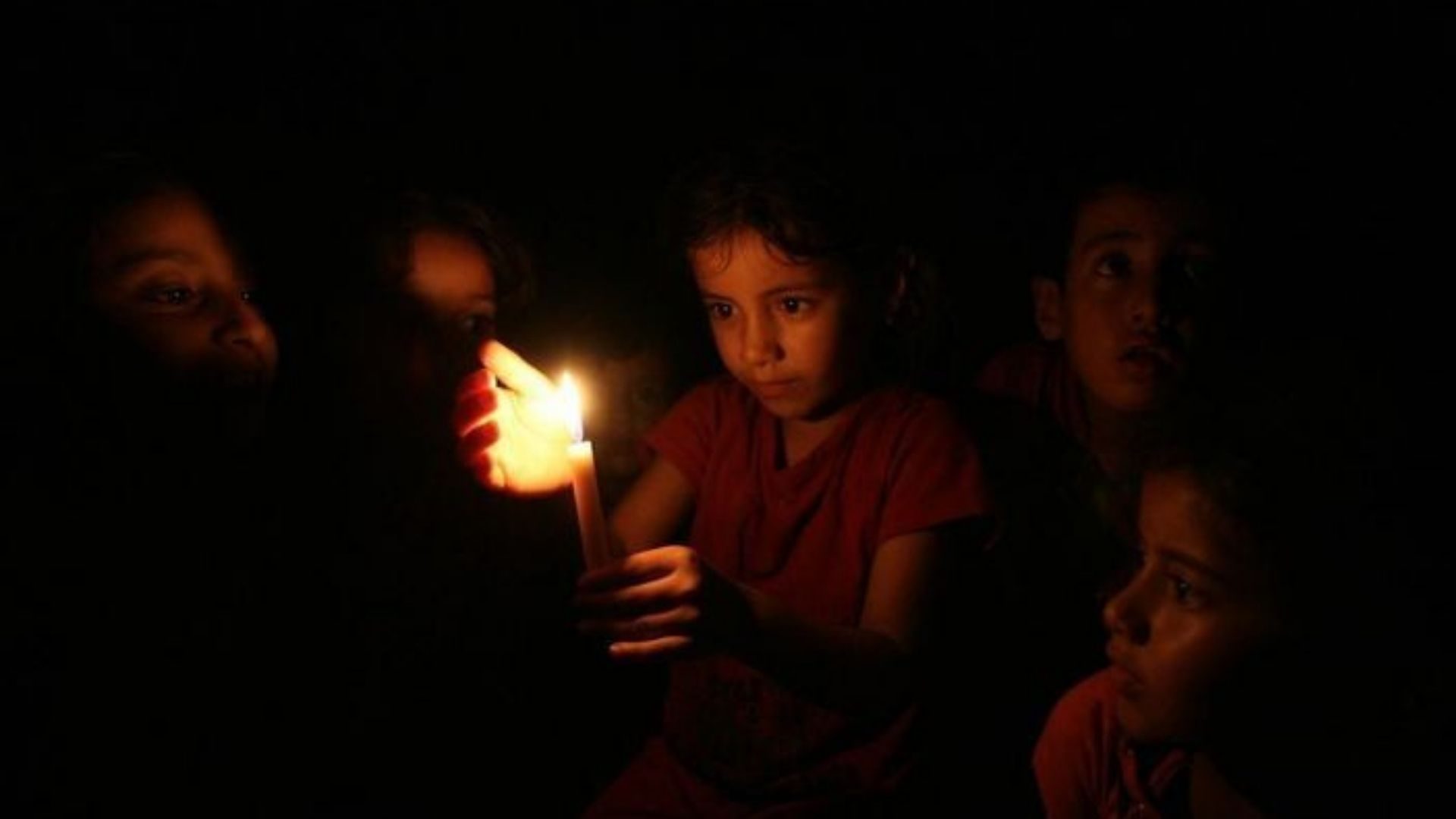The resumption of the fuel entry will lead to an increase in power supply across the besieged Strip, where Palestinians experience at least eight hours of blackout every day.
Qatar-funded fuel entered the Gaza Strip on Monday to power the city’s only electricity station for the first time since the May ceasefire, Palestine’s Shehab Agency reported.
صور من استئناف إدخال شاحنات الوقود الخاص بمحطة كهرباء #غزة عبر معبر كرم أبو سالم بعد منعه منذ العدوان الإسرائيلي الأخير pic.twitter.com/q21qvwq06a
— وكالة شهاب للأنباء (@ShehabAgency) June 28, 2021
The decision to allow the entry of the Qatar-funded fuel was announced earlier on Sunday by UN Middle East peace envoy Tor Wennesland after approval from Israel.
“Under UN framework, Qatari funded fuel deliveries for Gaza Power Plant will resume tomorrow, as per agreement btw UNOPS [United Nations Office for Project Services] and Qatar. I welcome all steps taken to de-escalate situation,” Wennesland tweeted a day earlier.
“The UN will continue to work with all concerned to solidify a ceasefire and help the people of Gaza,” he added.
The Israeli military body, Coordinator of Government Activities in the Territories [COGAT], said that the entry of the fuel paid for by the Gulf state will also be “conditional on the preservation of security stability.”
According to Al Jazeera, citing Israeli newspaper Yedioth Ahronoth, the diesel shipment entering through the Karam Abu Salem crossing is worth some $10 million and is expected to lead to an increase in power supply across the besieged city.
Gazans currently live with at least eight hours of blackout per day.
Over a decade of siege
Gaza has been suffering from an illegal Israeli embargo since 2006, which has placed over two million Palestinians under harsh conditions that only worsened during the latest offensive.
According to the Israeli Information Center for Human Rights in the Occupied Territories [B’tselem], the entire population in Gaza requires at least 600 megawatts of electricity to ensure that it gets a 24/7 supply.
However, Palestinians living in the besieged area only receive 180 megawatts, of which 120 are directly from Israel. These are carried through 10 power lines and 60 others from Gaza’s power plant, also funded by Qatar.
Read also: Qatari aid to Gaza to be transferred through United Nations: reports
As a result of the limited access, residents receive electricity in eight-hour rotations and suffer in the heat with no power, sometimes for up to 12 hours.
Israel also withholds fuel from the power plants, further limiting electricity to millions of residents and hospitals that are already struggling with the global coronavirus health crisis.
Last year, Israel stopped the fuel supply by closing the crossings with Gaza, causing the power plant to shut down within at least a week. This further reduced the strip’s power supply until it was re-opened in September.
The dire situation and limited access to electricity has been ongoing for decades, but the situation has worsened since the 2006 Israeli bombardment on Gaza, which destroyed the area’s power plant.
Israel also controls up to 90% of water sources and figures show just 10.5% Palestinians in Gaza have access to safe drinking water.
More than 96% of water in Gaza’s aquifers are not safe for consumption, forcing Palestinians to buy water at inflated prices despite their full right to access it for free.
Israel aid restrictions
Hamas leader Yahya Sinwar has warned Israel to allow the transfer of a monthly Qatari allowance worth $30 million or face escalation, suggesting authorities are blocking the aid to blackmail Palestinians.
In a meeting last week over Gaza’s humanitarian situation, Sinwar demanded the immediate transfer of aid to the city.
Read also: Hamas slams Israeli ‘blackmail’ as it continues to block Gaza aid
In a press statement at the time, the Hamas official said the UN delegation “listened to us with interest and deep concerns, but unfortunately there are no indications of any good intentions toward solving the humanitarian crisis in the Gaza Strip”.
“The criminal [Israeli] occupation continues to practice its policies against us and is trying to blackmail us on the issue of relieving our people of the situation,” said the Hamas leader.
Earlier reports also suggested that the UN had previously stepped in to facilitate the delivery and transfer of Qatari aid to Gaza according to a newly changed transfer mechanism, after Israeli authorities announced they would study the possibility of changing logistics for aid entry.
In May, weeks after the deadly 11-day bombardment of Gaza, Israel demanded that Qatar directly deposits all donations to the Palestinian Authority [PA] or international organisations.
However, recents Times of Israel reports said the PA would no longer be involved in the transfer of the Qatari cash to the besieged enclave, and that it would be done through the UN instead.
Tel Aviv has refused to allow the transfer of millions of dollars, claiming it would go towards Hamas, which runs the enclave. Senior Qatari officials as well as Hamas leaders have refuted those claims.
Follow Doha News on Twitter, Instagram, Facebook and Youtube







